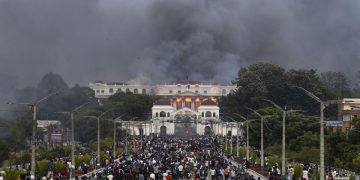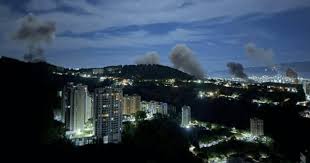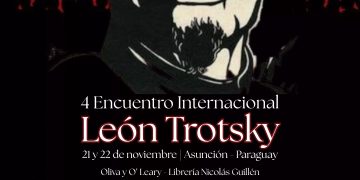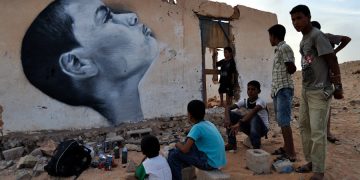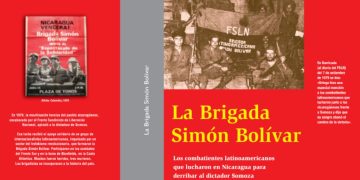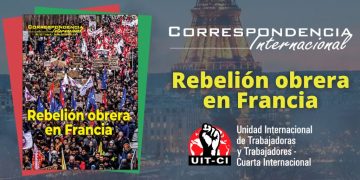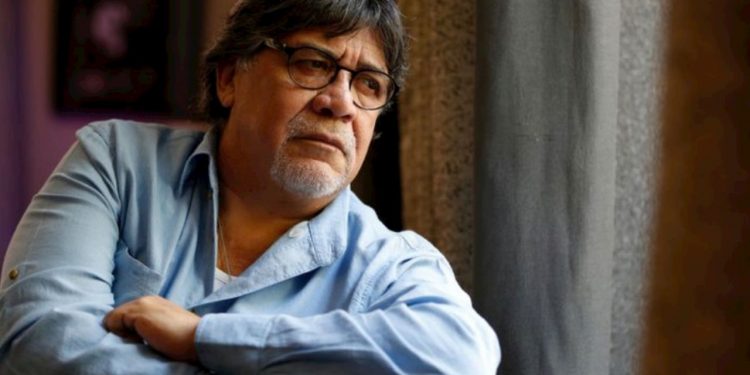 By Miguel Sorans
By Miguel Sorans
A leader of the Socialist Left in Argentina and of the IWU-FI. A member of the Coordinating Committee of the Simon Bolivar Brigade.
16 April 2020
Chilean writer Luis Sepulveda died in Spain on Thursday, 16 April, from coronavirus, his family confirmed. Sepulveda, who had been diagnosed with the infection in late February, was hospitalised at the Central University Hospital of Asturias. The 70-year-old writer began showing symptoms on 25 February, after returning from a literary festival in the northern Portuguese city of Porto. He had been living in Asturias with his family for several years.
We very much regret this news. Sepulveda was an important writer, but he was also a militant for right causes. Among them was the revolutionary struggle to end the Somoza dictatorship in Nicaragua. We were honoured that Sepulveda took part in the Nicaraguan revolution together with the Simon Bolivar Brigade, which promoted our socialist current. It was a brigade of Latin American fighters that was promoted from Bogota, under the initiative of the Argentinian leader Nahuel Moreno, who was in exile and the PST (Socialist Workers Party) of Colombia, which was leading a systematic international campaign of support for the struggle against the Somoza dictatorship and solidarity with the FSLN so it would triumph and lead its own government, without the bourgeoisie.
A former communist militant, Sepulveda had been forced to leave his native Chile in 1977 after being persecuted by the dictatorial regime of Augusto Pinochet. Sepulveda became internationally known in 1988 with the publication of “An Old Man Who Reads Love Stories”. Others followed this successful novel, such as «The Story of a Seagull”, “The World at the End of the World”, “The Cat Who Taught Her To Fly”, “The name of a Bullfighter”, “Patagonia Express”, “The rose from Atacama” or “End of the century”.
He was awarded the following prizes: ‘Gabriela Mistral’ Poetry Prize (1976), ‘Romulo Gallegos’ Prize (1978), ‘Superflainao’ Narrative Prize (1993) and ‘Ovidio’ Prize (1998) in Italy for “The Lost Frontier”.
In the novel ‘Nombre de Torero’, one of the main characters is an exile from Chile, Juan Belmonte, who has the name of a bullfighter. In the fictional plot, Belmonte tells that he took part in the Simon Bolivar Brigade and was repressed by the Sandinista government. The plot mixes characters from the sinister Stassi, a police force from the former East Germany, with Pinochet’s police force and the fall of the Berlin Wall.
In a Spanish magazine, Sepulveda recalled the Brigade on the day of the triumph of the revolution: “In July 1979, exactly on 19 July of that year, at sunset, I was sitting on the steps leading to the cathedral of Managua. The Sandinistas had defeated the dictator Anastasio Somoza, and I was there among the survivors of the last International Brigade, the Simón Bolívar, sharing among twenty or more, a small bag of rum from Nicaragua, and some atrocious cigars made by the Misquito Indians. There was a joy, but not euphoria, for all wars advance and last longer than one thought. Most of the fighters were very young, celebrating hope and what they would do with their country amid the cleanest and purest utopia, was alien to the cold war or the plans already being woven in Washington. In those moments one only thinks of their dead, and it is unfair to have survived. (Teina N° 16. October 2007.Valencian online magazine).
www.uit-ci.org
















